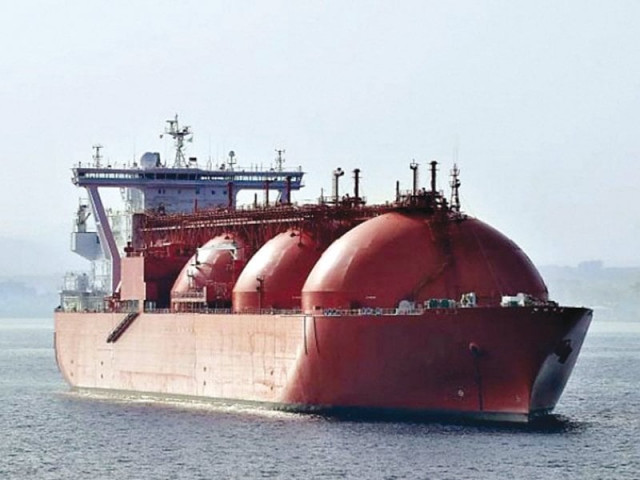Clash: Govt seeks to import LNG without guarantees
Qatar insists Heads of Agreement is binding, Pakistan refuses to accept.

The government has nominated Pakistan State Oil for negotiations with Qatar. PHOTO: FILE
“Major challenges could be negotiating a contract with the consultants and arranging three-month letters of credit amounting to around $800 million,” a senior government official told The Express Tribune, adding the government would like to do it without sovereign guarantees.
Pakistan is exploring three options to bring LNG supplies including a state-to-state contract with Qatar, competitive bidding and spot purchase.
Though LNG would not be cheaper, the energy source was very critical in meeting the country’s needs since domestic production was insufficient to bridge the shortfall while gas pipeline projects had their own challenges, the official said.
The government has nominated Pakistan State Oil (PSO) for negotiations with Qatar as it is the only public sector concern that has a strong balance sheet and has vast experience of import and shipping of petroleum products.
“Since LNG will mainly replace liquid fuels in power plants, PSO can maintain its revenues by getting involved in LNG business,” the official remarked.
Back-to-back arrangements will be made with gas distributors – Sui Southern Gas Company and Sui Northern Gas Pipelines – to ensure timely and smooth conclusion of supply deals. PSO wants the utilities to cover financial obligations as it will be importing LNG for them.
PSO has received the Heads of Agreement (HOA) from Qatargas, which says that if the sale-purchase agreement is not concluded by a specified date, the HOA will be binding. HOA is a non-binding document outlining the main issues relevant to a tentative partnership agreement. It represents the first step on the path to a full legally binding agreement.
However, according to officials, the Ministry of Petroleum and Natural Resources has told PSO that such a provision is not acceptable. At the same time, the ministry has asked PSO to explore the spot market and start homework on the Master Sales Agreement for spot purchase.
Earlier, during negotiations with the previous PPP-led government, Doha had offered LNG at a price equivalent to 14.7% of Brent crude oil when it was hovering around $110 per barrel in the international market.
Later, it pushed the price down to $17.437 per million British thermal units (mmbtu), a 0.5% discount over the previous rate of $18.002 for the 20-year lifetime of the project.
Published in The Express Tribune, June 14th, 2014.
Like Business on Facebook, follow @TribuneBiz on Twitter to stay informed and join in the conversation.



















COMMENTS
Comments are moderated and generally will be posted if they are on-topic and not abusive.
For more information, please see our Comments FAQ